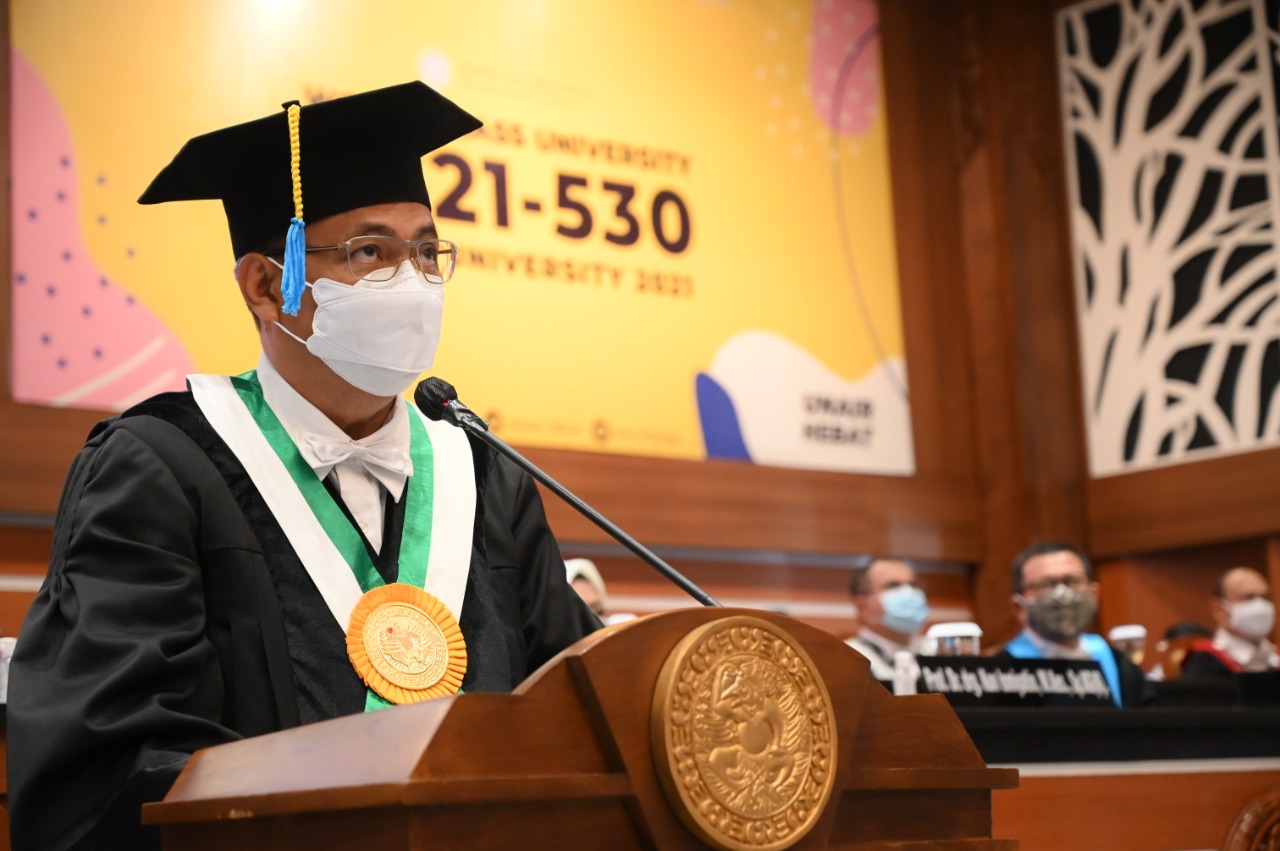UNAIR NEWS – Prof. Dr. Raden Darmawan Setijanto, drg., Master of Health Faculty of Dental Medicine (FKG) Universitas Airlangga (UNAIR) was one of the professors inaugurated on Wednesday, October 21. The professor in the field of Public Dental Health promotes the acceleration and re-architecture of the development of public dental health through big data, Artificial Intelligence (Al), and machine learning.
In his speech, Prof. Darmawan said the development of research and output from public dental health had not shown satisfactory progress. In dental caries, for example, where 67.3 percent of 5-year-old children in Indonesia still experience the burden disease and only 10.2 percent of them are treated by doctors. In fact, developments in the quality of research, medicine, vaccines, and dental medicine graduates continue to increase from year to year.
Therefore, the 29th active FKG professor argued that conventional science is currently too well-established so that rigid local assumptions limit it.
“The development opportunities through conventional theory are limited. Apart from that, conventional science also has a relatively high possibility of bias due to inaccurate and less adaptive scientific grouping and statistical assumptions, “said the graduate of UNAIR undergraduate, master, doctoral program of UNAIR.
Reflecting on the pandemic situation and the need for fast research in handling aspects related to epidemiology, Prof. Darmawan stated that dental research needs to break conventional theories and various assumptions that limit the development of its knowledge. Therefore, he emphasizes the importance of big data as a more structured research tool, planned, strategic and valid. Big data in practice empowers AI technology and machine learning which is an interconnection of machines and computers that are connected.
“They can experiment, evolve, and improve their learning automatically to make more accurate, innovative, and adaptive decisions,” said the former Dean of FKG UNAIR 2015-2020.
Through Al technology and machine learning, research on dental health and epidemiology can eliminate statistical assumptions and bias. Science and research that initially apply locally will find it easier to find generalizations that are closer to tangible results. Besides, technology is capable of studying cross-border fields as well as knowledge-based on emotion and norms.
Based on his research in collaboration with University of Western Australia, Prof. Darmawan believes that when big data technology, the theory of cross-scientific concepts can be realized. Moreover, big data is specifically able to identify specific DNA as well as the normative and emotional characteristics of specific dental health that affect Covid-19 infection. Through the use of this technology, new theories can be formed not only locally, but also able to be generalized for various conditions.
Author: Intang Arifia
Editor: Binti Q. Masruroh





